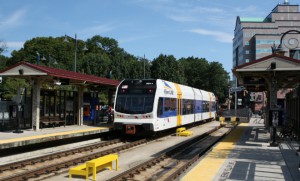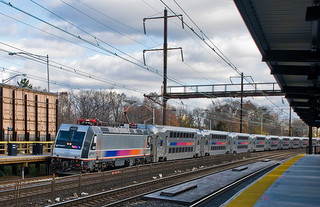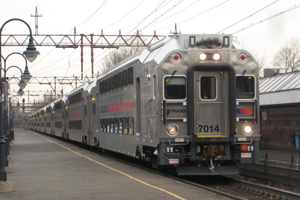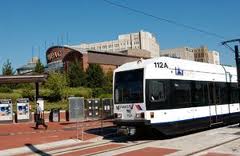New Jersey Future Blog
What Can 23 Cents Buy?
October 5th, 2016 by Peter Kasabach
The state Legislature is poised to approve a 23-cent gas tax increase along with a host of tax cuts. The increase in the gas tax revenue should enable a number of positive things to happen in New Jersey, but only if state leaders commit to the following:
Manage the Transportation Trust Fund Responsibly. Past management practices of the fund have allowed excessive borrowing and borrowing for short-term improvements. This has had the unfortunate result that all of the revenue going into the fund is now being used to pay debt service on projects that have already happened, leaving no funds for future projects. The Legislature and executive branch must resist the urge to approve a flurry of new capacity projects funded by new debt, and instead ensure that a majority of the new funding go toward a pay-as-you-go system for maintenance and repairs.
Increase Funding for Transit. Transit-oriented development is one of the biggest economic drivers in the state. Companies across the country are increasingly interested in locating near transit stations and New Jersey is well positioned to take advantage of this trend. In addition, thousands of riders use NJ Transit every day and demand is increasing, which means less wear and tear on our roads and reduced traffic congestion. The state must increase the capital funding that goes to transit projects, including figuring out how to pay our share of the cross-Hudson rail tunnel.
Fund Transit Operations Permanently. The state contributes approximately $300 million per year from the general fund toward NJ Transit operations, since Transportation Trust Fund money cannot be used for this purpose. Given the large tax cuts that are part of the gas tax compromise legislation, it is unclear where the state will make spending cuts to offset the reduced revenue. The state must ensure that NJ Transit operating dollars are preserved in the annual budget and identify a dedicated funding source for ongoing operations.
Target Road Funds for Biggest Benefit. Aside from transit projects, the state needs very few new-capacity infrastructure projects. The backlog of maintenance and repair projects should be the state’s singular priority. In order to prioritize these projects further, the state should look at supporting projects that will enjoy the highest per-capita use. The state must re-commit to a “fix-it-first” approach and incorporate per-capita use when making difficult decisions.
Does New Jersey need a gas tax? Yes. Is the current size of the gas tax increase appropriate? It’s a good start. Will this gas tax create a truly sustainable Transportation Trust Fund? We don’t know. We need to know how this money is going to be spent, that the tax cuts won’t have unintended consequences and that the financial structure of the trust fund will be sustainable, so that the state’s residents and businesses aren’t asked for another increase in a few years to pay down the state’s credit-card balance.

















Thank-you for providing a balanced assessment of the State’s transportation needs.
So sad. The 23 cent tax increase now will not make up for the decades of underfunding transportation in NJ. Its a patch that will do some good. The cuts elsewhere in the budget only means the underfunding problem will be visited on other state departments. In a word, NJ government is dysfunction. Our motto should be “NJ, What’s in it for me?”
I’m surprised that this article did not address the highest road construction costs in the Nation. Substantial reductions would balance the need for additional revenues. Before taxpayers are asked for more funds, the costs of construction must be brought under control.
Funding for the TTF has been a long time coming but it won’t be enough. Besides the backlog of required maintenance, the fund will continue to experience shortages as vehicle miles per gallon of gas increases and more hybrid and electric vehicles take to the road. While the enacted funding legislation allows for increases in the gas tax the question is who will be paying for it and just how much can they be taxed?
Is it time to rethink how we tax for transportation funding?